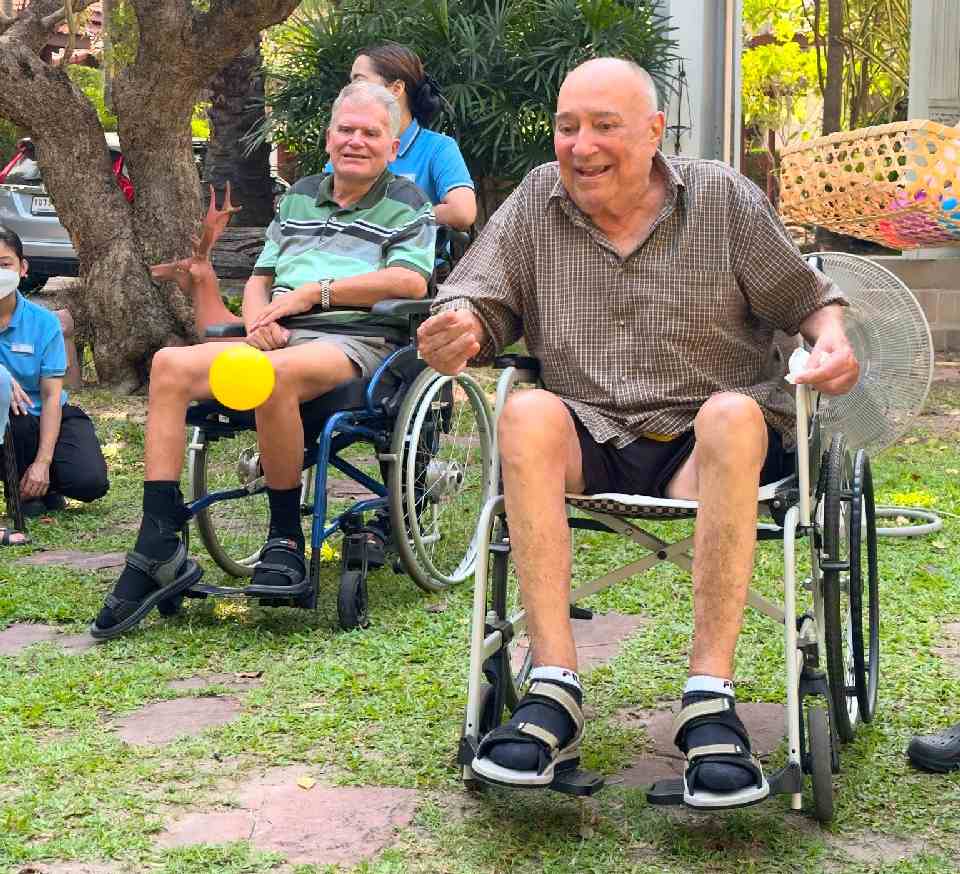
Private companies are now getting seriously involved in upscale residences for retirees. Scarisbrick International, an Australian 6-star company, is collecting expressions of interest (not yet bookings) from potential customers in Thailand including the Pattaya area. Hospital City, a huge medical facility under delayed construction near Mabprachan Lake, will include onsite village facilities for the elderly, Thai and foreign.
Most countries in south east Asia are fast becoming ageing societies. Malaysia in particular has developed facilities quickly and now offers over 1,400 private aged care homes. Younger generations throughout the region are now less likely to take on the responsibility of caring for elderly parents, posing all sorts of questions about future provision. In Thailand there are approximately 800 homes covering both the public and private sectors which will need to be dramatically expanded during the present decade as Thai citizens inevitably become less independent.
Expat retirees in Thailand too, as they age, can face serious problems once their health deteriorates. The lucky ones are cared for by their Thai families or even find charitable accommodation in Thai religious foundations. The huge gap in provision is likely to be filled by private providers, although the service costs will be high. Some care homes say their monthly prices start at 20,000 baht (US$550), but there are many additional charges such as all medical services, transport, meals apart from breakfast, games, special help for mental deterioration etc.
These extras can push the monthly bill much, much higher. The best care may require a budget as high as US$2,000 monthly even without significant surgical procedures. For the well-heeled, retirement villages may well become the norm although the motivation in Thailand will be profitability rather than social responsibility or community engagement. Expat retirees, even if they are to be taxed on assessable cash – whether remitted or part of their worldwide income – will not receive any state subsidy.
Elderly foreigners are present in Thailand under a multiplicity of visa arrangements: principally annual extensions of stay based on retirement or marriage, the Elite visa or the new ten-year Long Term Residence visa. Although no reliable statistics are available, most (except for the handful with LTR) do not have comprehensive medical cover and will likely find it’s too late to start. As Thai lawyer and visa specialist Jessataporn Bunnag puts it, “Thailand welcomes retirees from all over the world, but expects them to fund their own care from insurance or cash as they inevitably decline.” This issue is the elephant in the room when retirees contemplate their future in the Land of Smiles.








